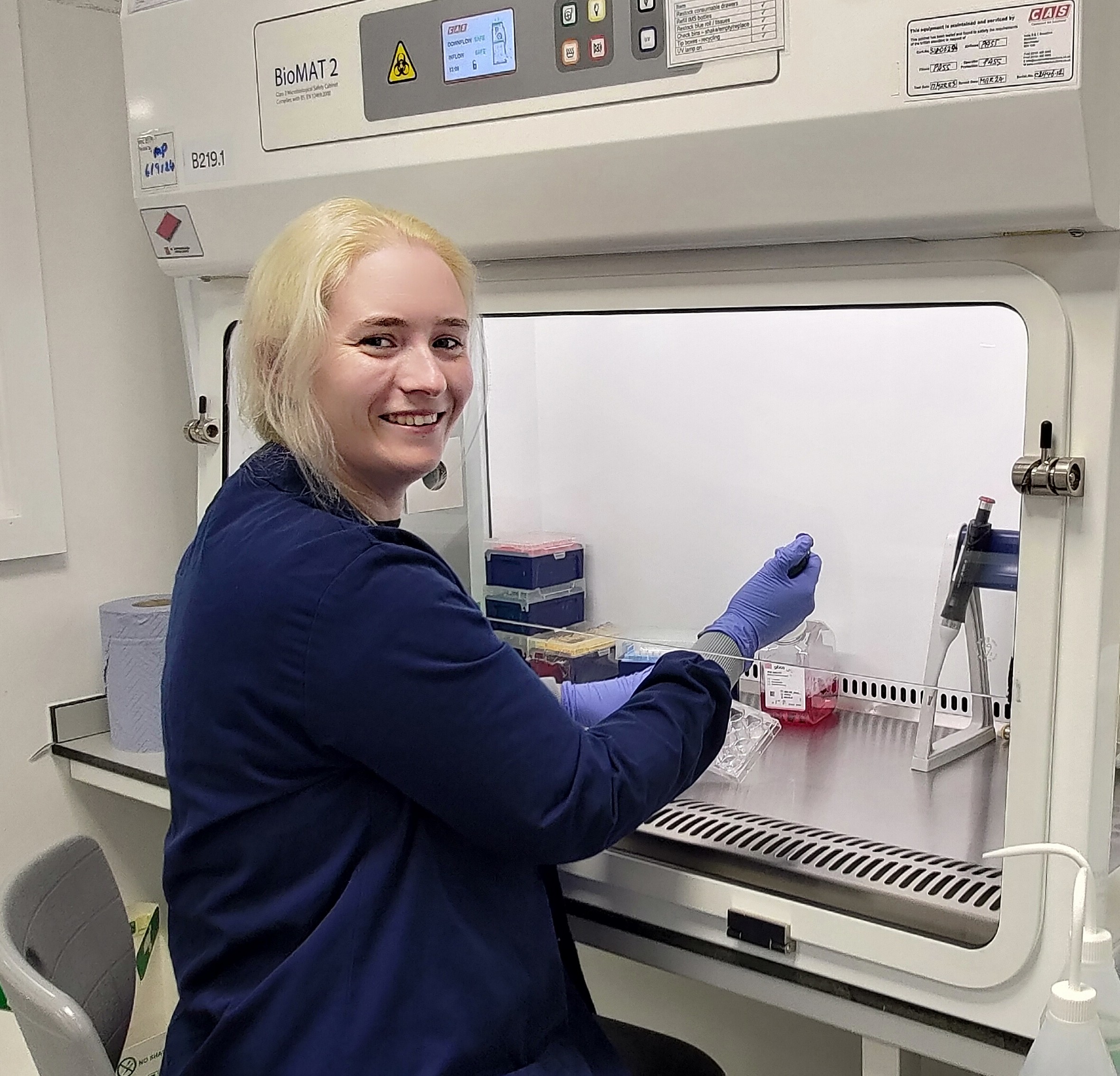
The devastating blow suffered by Acute Myeloid Leukaemia (AML) patients who get the all-clear and then relapse was the spur for Assistant Professor Sophie Kellaway at the University of Nottingham to undertake specialist research into the disease.
Ahead of World Cancer Research Day on 24th September, we have awarded Sophie a £23,000 Early Careers Grant to support her work entitled ‘Investigating DNA damage accumulation in Leukaemia stem cells’. She has embarked on the 18-month project with the support of a research student at Nottingham.
She said: “What I am interested in is why some patients go on to relapse and how we can stop this from happening. Some patients who contract AML sadly die quite quickly but others respond well to chemotherapy but then relapse. This is especially difficult as treatment the second time around is often less successful.”
The emotional toll on patients who believe they have beaten the disease only to see it return months or sometimes years later can be severe and understanding the triggers for the disease to come back could lead to better outcomes, she explained.
Her laboratory-based research centres on the re-growth of cells that cause the cancer and whether they can be neutralised with the use of two drugs already available to treat other conditions and which, she believes, may help prevent the return of certain types of blood cancers.
Avastin is used to treat colorectal cancer and Fasenra is used in the control of asthma, but both could play a part in preventing patients who have recovered from blood cancer relapsing. Before any clinical trials can take place, however, Sophie must ensure there are no negative impacts from using these drugs as the pathways they block in the blood cancer cells are complex.
She hopes to produce enough evidence to take to drug companies to carry out further research if the potential benefits for blood cancer patients can be demonstrated.
Sophie said she was grateful to LMRUK for giving her the research grant. “I know other AML researchers who are associated with LMRUK and they pointed me towards the charity and its research grant applications.
“There are not a lot of organisations offering these kinds of grants for smaller and very specific projects like mine and I am grateful that LMRUK has given me this support”, she added.
Sophie trained as a Post Doctorate Researcher at the University of Birmingham with Professor Constanze Bonifer, the Emeritus Professor of Experimental Haematology in the University’s Department of Cancer and Genomic Sciences.
She said: “Prof Bonifer was a leader in the AML field and working with her empowered me to set up my own lab in the Centre for Cancer Sciences at Nottingham to embark on this work.”
Our Operations Director, Dr Joanna Tilley said: “We’re really pleased to award Dr Kellaway with one of this year’s grants to advance her specialist research. She has been awarded our Early Careers Research Grant, which has been created to support scientists in the first stages of their career.
“A big congratulations to Sophie and we look forward to hearing how her research progresses.”
All grant applications are reviewed by the charity’s Research Review Committee, which comprises of six specialist scientists appointed by the Board of Trustees.
For more information on our annual Research Grant Scheme, visit: https://lmruk.org/research.









